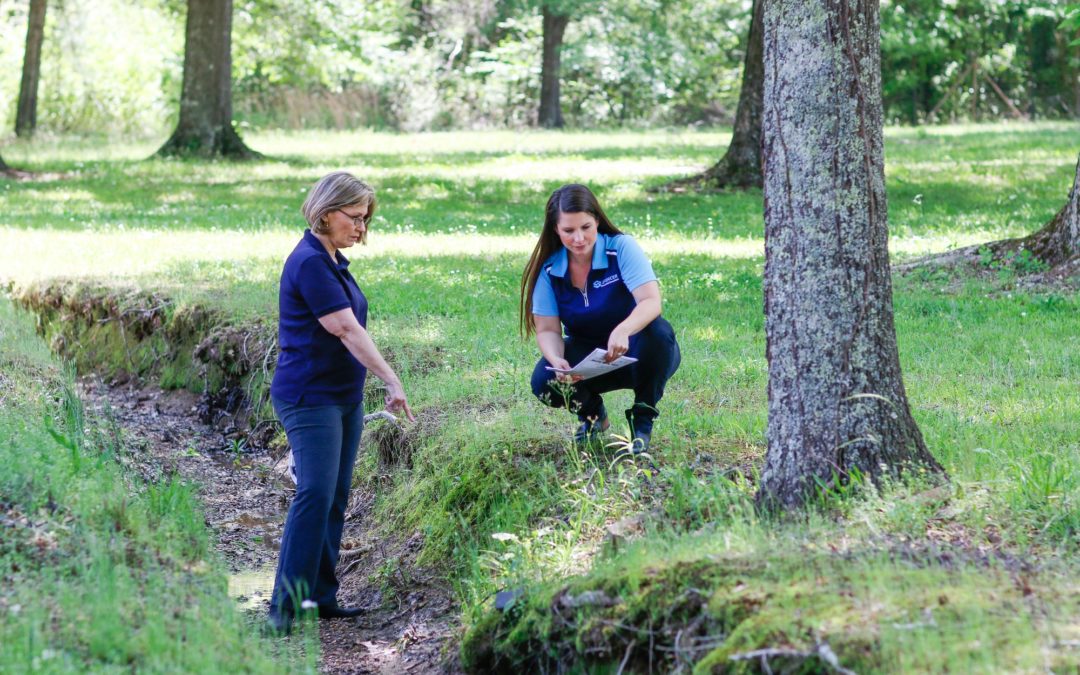Many facilities covered under a stormwater permit must conduct stormwater monitoring. Obtaining a representative stormwater sample can be difficult without proper planning. The quality of results can be the difference between compliance or fines and violation.
First, understand your stormwater requirements. Your permit will state the required parameters and frequency of sampling. Be sure to know exactly where your outfalls are located. Taking samples from the wrong location will lead to poor results and violation of your permit.
It is critical to understand the type of discharge event you will be sampling. Two requisites must be met before a rain or snowmelt event is considered acceptable for sampling.
- The rain or snowmelt event must create actual discharge from your site. This will vary depending on size, duration of the event, and amount of impervious surface at your site. Also, frequency of measurable events will affect discharge. Saturated soils will generate discharge more frequently than dry soil, but very dry soil can become compacted and can generate discharge quickly. Awareness of your facilities characteristics to understand what type of events will create discharge will make it easier to predict the best time to sample.
- Sampling must occur after 72 hours have passed since the previous measurable event. The Environmental Protection Agency (EPA) defines a storm event in 40 CFR 122.21(g)(7)(ii) as a rain event with greater than 0.1 inch of rainfall.
Documenting each rain or snowmelt event can assist in characterizing your facility. Also consider documenting the dates which rain occurred , the amount of rainfall, and if discharge occurred. This will help anticipate which events will create discharge.
Become familiar with precipitation trends, storm patterns and seasonal variations. Check the weather forecast to prepare to sample upcoming precipitation events. The National Oceanic and Atmospheric Administration (NOAA) is a great source to obtain weather forecasts.
In addition, use the correct sampling equipment and be sure it’s clean to prevent contamination from past sampling events. For analysis of your sample, use a trusted lab recognized by your state governing agency with certifications and quality control data.
Spencer-SHE does stormwater sampling and Stormwater Permit Compliance and Sampling Protocols training. Contact us to assist with the compliance of your stormwater permit.

